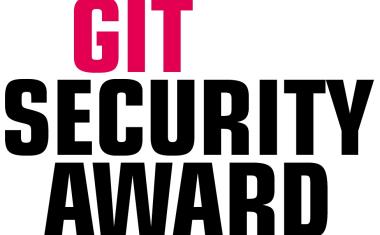Should security system integrators be banished to the land of dinosaurs?
The need for security system integrators appears to be waning at least for those that havent invested sufficiently in employee skills and training. End clients increasingly need ...

The need for security system integrators appears to be waning – at least for those that haven’t invested sufficiently in employee skills and training.
End clients increasingly need help integrating access control systems with their IT environments. But many security system integrators aren’t providing this specialist IT support, so manufacturers have begun offering services that make implementations and integrations easier. At the same time, manufacturers face a dilemma because taking over the role of integrator isn’t scalable. This will push them to create products for off-the-shelf integration that make implementations in IT networks as easy as possible.
The result is that, due to lack of training or investment in IT experts, many integrators are implementing fewer security systems, and those they have integrated are faltering. The growing number of cloud-based security solutions also means that many clients will be looking to buy installation-only services.
5 ways to survive and succeed as a security system integrator
So has the role of security system integrator come to end? Do you risk being downgraded to simple access control installers? Much depends on how willing you are to adapt your offering and invest in the training your people need. Here’s how you can lengthen your life expectancy as a security system integrator.
1. Invest in strong IT knowledge
In access control and the wider security business, TCP/IP has become the standard for communication between devices and central server applications. Which means every technician needs to know how to connect an IP device to the client’s network and configure it in the central application. And they need to understand how active network components work in combination with the application.
But this is just a starting point when it comes to IT knowledge – there’s so much more that integrators now need to be proficient in. What do you know, for example, about clients’ LAN, WAN and VPN networks? Do you know how to set up a central server application with or without virtualisation, redundancy and back-up system?
Do you have an expert who’s fully clued up on encryption technologies such as symmetric or asymmetric encryption, hashing, AES128, TLS 1.2 and transparent communication? How do you use digital certificates provided by a certification authority within security management?
If you’re delivering access control systems and badge technology with key encryption, it’s important to know about key management too. And, last but not least, integrating applications at server level needs to be in your skillset – whether that’s integrating two or more security systems or the client’s HR database. Most security system integrators have invested in one or two IT experts but, in practice, it’s not enough to fulfil clients’ expectations.
2. Provide implementation skills
Integrators often see it as a necessary evil to translate a client’s requirements into security or access control applications. But it’s actually a valuable opportunity to distinguish yourself from the competition.
It demands a depth of experience and product knowledge that can only be provided by experts. Without such experts, implementations are carried out in a standard manner, which can leave the client feeling that their needs have neither been listened to nor met.
3. Choose a small but rich portfolio
This sounds easy, but it isn’t. Choosing the right products that scale easily for growing enterprises is tricky. You not only need to consider the scalability of the system, but also the potential need for increased functionality or connectivity with other systems.
It’s worth taking your time, therefore, to select the right products for your portfolio. Check the background and outlook of your chosen products’ manufacturers too to ensure the items aren’t likely to become obsolete any time soon. This can often happen when, for example, a manufacturer is acquired by another company.
4. Add value to clients’ businesses
Increasing the value that you offer to both existing and new clients is a great way to grow your business, increase profits and fend off competitors.
Setting up access control reports, for example, can give the client insight into visitor flow during peak hours. This knowledge enables them to plan front desk staffing accordingly, which improves the visitor experience and also employee satisfaction. When you provide such a consultative service, it immediately moves you up the value chain.
5. Position yourself in the cloud
The low and mid segment of the security market is already moving towards plug and play cloud-based solutions that need no system integration or IT skills. What remains is the need for installation and maintenance services, which reduces the profit opportunity and value of system integrators. A next-level approach is to sell cloud-based security services yourself, so you can capture and retain clients’ loyalty.
Stay agile and in the know
The upshot is that, to survive and grow as a security system integrator, it’s vital to respond to the market’s ever-changing trends, technological developments and client needs. To ensure you’re ready to adapt and provide the services clients are looking for, it’s also crucial to provide the training your people need.
Access control training for integrators
Nedap offers a range of training options for security system integrators. To find out more, contact us.















